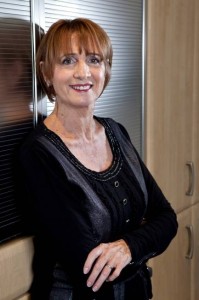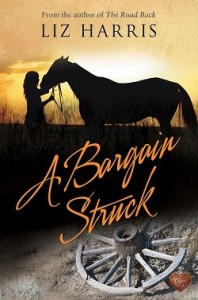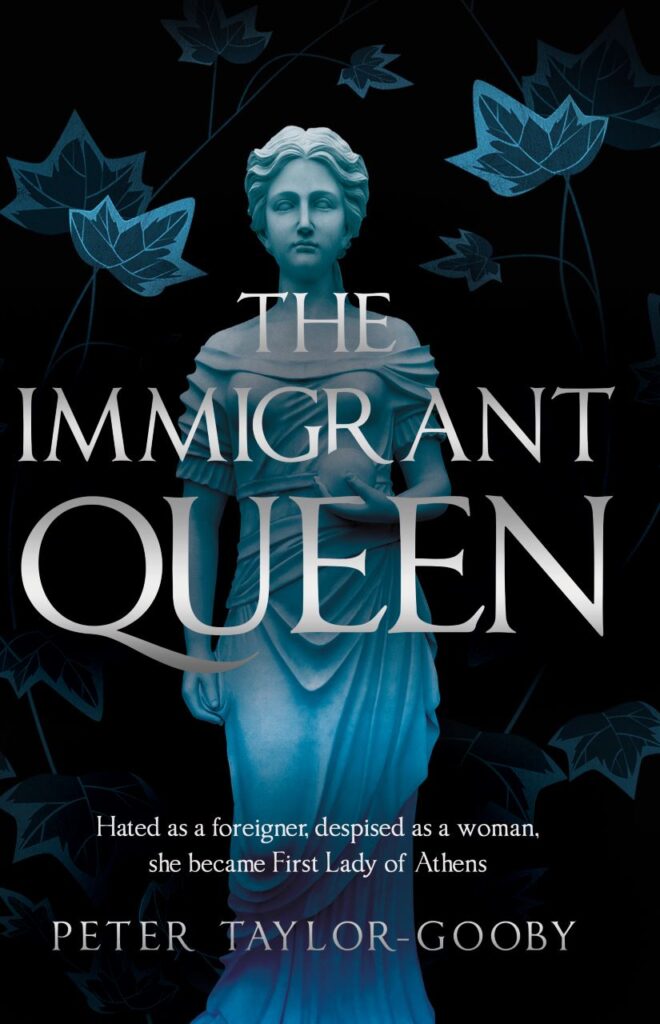The RONA shortlists: Liz Harris on A Bargain Struck
Richard Lee
Liz Harris is shortlisted for the Romantic Historical Novel Prize. See the other shortlisted historical titles for the Romantic Novel of The Year. The winner will be announced on Monday 17th March 2014.
A Bargain Struck, the story of a second generation homesteading family, is set in Wyoming 1887.
In my debut novel, The Road Back, published the year before, I had told the story of a girl brought up in a house filled with grief in 1950s London, and the story of a boy brought up in a small village in the Buddhist part of Ladakh, an Indian province north of the Himalayas. I had loved researching Ladakh and learning about the ways in which the Ladahki survived in the harshest of conditions, and I was keen to write another novel which gave me the same opportunity to explore the way people in which people lived at a different period, in a very different environment.
Whilst thinking about what to do, I heard a Radio 4 programme about mail-order brides from Russia. This struck a chord with me. When I lived in California some years ago, I studied American history so I knew that mail-order brides were prevalent in Wyoming in the 1880s, and this had always seemed to me a concept full of historical and emotional potential.
My interest alive and burning, I went back to my history books, looking specifically at the history of Wyoming. The moment that I read about the situation in 1887, I knew that I’d discovered the year in which to set my story, and I started to focus my research on that period.
To my surprise, I found that while there was much written about the 1850s and 1870s – the pioneer days, and their covered wagons – there was little about the late 1880s, a time when the Indian troubles were virtually a thing of the past, and the railroad had come. In the end, in order to find out what I needed to know to recreate with accuracy the life of a family at that time, I went to Wyoming.
The thrill of walking where my characters walked, breathing the air they breathed and learning firsthand about their lives, was something that will always stay with me.
Readers have commented that they felt as if they were living in the house with Ellen and Connor, and were eavesdropping on private conversations. That I seem to have managed to make Ellen, Connor and Bridget step off the page is probably the thing of which I’m most proud.
History and romance, or romance and history?
History and Romance. Definitely in that order.
The history is the most important thing. My stories grow out of the history of the time and place, rather than being a story imposed upon an historical background.
1887 was a transitional year in the history of Wyoming, marking as it did the end of the open range, and this determined the characterisation. One of the ways in which I tried to bring the history to life was by creating characters who embodied the changes that were taking place in society, thus informing the reader in a natural, non-didactic way.
The American West was a period when settlers struggled to make a living out of a difficult environment. Inevitably, there was a division of labour: there was a man’s work and a woman’s work. For the family to function as a productive unit, the man and woman had to work in harmony. Extreme emotional language in expressing one’s feelings could threaten that essential harmony. Not surprisingly, therefore, the letters between the men and women of the period, who were to live long lives together in the most adverse of circumstances, display a complete lack of strong sentiment.
One of my challenges in writing A Bargain Struck, which is both historical and romantic, was to depict a developing love with a complete absence of the terminology of romance that is often employed to convey those emotions in contemporary romantic fiction.
Inspiration, the future, the greats.
I would find it difficult to single out any one writer as I feel that I’ve learnt so much from everything I’ve read, and I know that those many novelists whose books I’ve devoured will have influenced me without me realising it.
If I had to single out one author, it would be Jane Austen. I very much admire the way in which she allows her characters to condemn themselves every time that they open their mouths. There is no need for Jane Austen to step forward in her own persona, as does George Eliot, for example, and direct the reader as to the way in which he or she should regard the character.
When I look at the past and think back to historical romantic novelists such as Mary Stewart, I feel a twinge of envy for the freedom they had. The emphasis today is to start amid the action so as to hook the reader from the outset. We live in a fast-paced environment, where there is always something happening, and that is reflected on the page.
This stricture didn’t exist in the past. Novelists were allowed to set the scene, introduce the characters at their own pace and give them time to grow. By the time that the action began, the reader knew the characters, was interested in them and felt for them and wanted to follow their adventures.
However, we now live the world of rapidly developing technology, with something new every few seconds, and with everything happening at greater speed, and as writers of historical romance, the challenge that faces us today is to tread the difficult path between the expectations of the modern reader and our desire to depict an authentic historical past.
Quick questions
Cathie Earnshaw or Elizabeth Bennett? Definitely Elizabeth Bennett. I have never liked Wuthering Heights, but have always loved Pride and Prejudice.
Shabby chic or National Trust? National Trust.
Jamie Fraser or the Scarlet Pimpernel? I am about to start reading Cross Stitch, so can’t yet comment on Jamie Fraser, but I loved The Scarlet Pimpernel, which set my imagination on fire when I read it as a child.
Call the Midwife or Downton Abbey? If I can stick to the first series only, Downton Abbey.
Dinner with… Tony Robinson or Dan Snow? Definitely Dan Snow.
Movie or theatre? Equally, if that’s allowed. I adore the theatre and go into London to go to the theatre once a month on average, but I also go regularly to the cinema. I love stories, whether they come to me in books, or from the stage or on film. If I had to choose a favourite of the three, it would be to find my stories in the pages of a book. I have yet to see a production of a book – TV, film or theatre – which is better than the novel.
Wolf Hall or The Other Boleyn Girl? Definitely Wolf Hall








